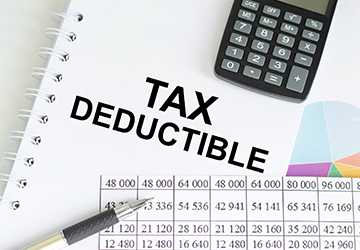Understanding Tax Deductions for Freelancers and the Self-Employed
Navigating taxes as a freelancer or self-employed individual can be arduous. Comprehending which deductions you qualify for can save you substantial money. This guide will elucidate the essentials of freelancer tax deductions and offer practical tax tips for freelancers.

Importance of Understanding Tax Deductions
You are tasked with managing your taxes as a freelancer or self-employed individual. This includes understanding freelancer tax deductions that can reduce your taxable income. Numerous indispensable expenditures for your work can be deducted, leading to considerable savings.
Standard Tax Deductions for Freelancers
Home Office Deduction
One of the most advantageous freelancer tax deductions is the home office deduction. If you utilize a part of your domicile exclusively for business purposes, you can deduct a portion of your mortgage or rent, utilities, and home insurance.
Key Points:
- Must be used regularly and exclusively for business activities.
- Can be a percentage of your home expenses based on the area utilized for business.
Office Supplies and Equipment
Any office supplies and equipment you procure for your business are deductible; this includes computers, software, printers, and even minor items like pens and paper.
Key Points:
- Retain all receipts and records.
- Depreciate more oversized items over several years if necessary.
Travel Expenses
If you travel for work, you can deduct travel-related expenses such as airfare, hotels, and meals; this is another significant freelancer tax deduction that can lower your taxable income.
Key Points:
- Must be business-related travel.
- Maintain meticulous records of your expenses.
Internet and Phone Expenses
Freelancers can apportion a segment of their internet and phone expenses if they are used for business purposes. This deduction can encompass both home internet services and mobile phone plans.
Key Points:
- Only the business-use percentage is deductible.
- Maintain meticulous records of business versus personal use.
Education and Training
Allocating funds toward education and training pertinent to your freelance work can also be deductible; this includes courses, workshops, seminars, and literature or online resources.
Key Points:
- Must be directly related to your current business.
- Preserve receipts and records of all educational expenses.
Advertising and Marketing
Expenditures related to advertising and marketing your freelance business are fully deductible, including costs for website development, online advertisements, business cards, and promotional materials.
Key Points:
- Include costs for both online and offline marketing efforts.
- Maintain comprehensive documentation of all advertising expenditures.
Specific Deductions for the Self-Employed
Health Insurance
If you are self-employed and not eligible for employer-provided health insurance, you can deduct the premiums you pay for health insurance for yourself and your family.
Key Points:
- Applies to medical, dental, and long-term care insurance.
- Must be self-employed and not eligible for employer-sponsored insurance.
Retirement Contributions
Self-employed individuals can also deduct contributions to retirement accounts like SEP IRAs, SIMPLE IRAs, and solo 401(k)s. These contributions can significantly reduce your taxable income while facilitating your retirement savings.

Key Points:
- Limits on contributions vary by account type.
- Consult a tax advisor to maximize contributions and deductions.
Professional Services
Fees remunerated to professionals such as accountants, lawyers, or consultants for business-related services are deductible; this can also include costs for software or online services that facilitate business management.
Key Points:
- Must be for business purposes only.
- Retain invoices and records of services rendered.
Additional Tax Tips for Freelancers
Keep Detailed Records
Following the tax tips for freelancers, it is crucial to maintain comprehensive records of all business expenses; this not only aids in tracking your deductions but also provides necessary documentation in case of an audit.
Tips:
- Utilize accounting software to monitor income and expenses.
- Preserve all receipts and categorize expenses regularly.
Estimate and Pay Quarterly Taxes
Unlike traditional employees, freelancers and the self-employed must pay estimated taxes quarterly; this helps avoid underpayment penalties and substantial tax bills at the end of the year.
Tips:
- Calculate estimated taxes based on your projected income.
- Use IRS Form 1040-ES for estimated tax payments.
Using a Self-Employed Tax Guide
A comprehensive self-employed tax guide can be handy. These guides often provide detailed information on deductions, credits, and tax filing requirements specific to freelancers and the self-employed.
Key Benefits:
- Clear elucidations of eligible deductions.
- Step-by-step instructions for tax preparation and filing.
Tax Planning Strategies for Freelancers
Defer Income
If you foresee being in a lower tax bracket next year, consider deferring some of your income until the subsequent year. These tax tips for freelancers can help reduce your current tax liability.
Key Points:
- Ensure compliance with IRS regulations.
- Strategize to balance income and deductions effectively.
Prepay Expenses
Prepaying business expenses, such as rent, utilities, or insurance premiums, can help maximize your deductions for the current year.
Key Points:
- Only prepay expenses that are necessary and planned.
- Keep meticulous records of all prepayments.
Employ Family Members
Hiring family members to assist with your business can provide additional tax benefits. Wages paid to family members can be deducted as a business expense, and you also benefit from lower overall tax rates.
Key Points:
- Ensure the work performed is legitimate and necessary.
- Maintain proper payroll records and documentation.
Utilizing Tax Credits for Freelancers
Earned Income Tax Credit (EITC)
Using a self-employed tax guide, Freelancers who fall within certain income thresholds may qualify for the Earned Income Tax Credit. This credit can significantly reduce your tax liability and even result in a refund.
Key Points:
- Eligibility depends on income level and family size.
- Consult a tax professional to determine qualification.
Retirement Savings Contributions Credit
Also known as the Saver's Credit, this tax credit is available to freelancers who contribute to retirement plans. It can cover up to 50% of their contributions.
Key Points:
- Applicable to contributions to IRAs, 401(k)s, and other retirement plans.
- Income limits apply for eligibility.
Health Coverage Tax Credit
Using a self-employed tax guide, This credit can cover a percentage of your insurance premiums.
Key Points:
- Must be paying for qualified health insurance plans.
- Maintain meticulous records of insurance premiums paid.
Conclusion
Understanding and leveraging freelancer tax deductions is essential for maximizing income and mitigating tax liability. By staying informed and maintaining detailed records, you can ensure you take full advantage of the deductions available to you. Consult a tax professional to optimize your tax strategy and comply with IRS regulations.
For more detailed information, referring to a self-employed tax guide can provide valuable insights and ensure you take advantage of all pertinent deductions. Implementing these tax tips for freelancers will help you confidently navigate the intricacies of self-employment taxes.





